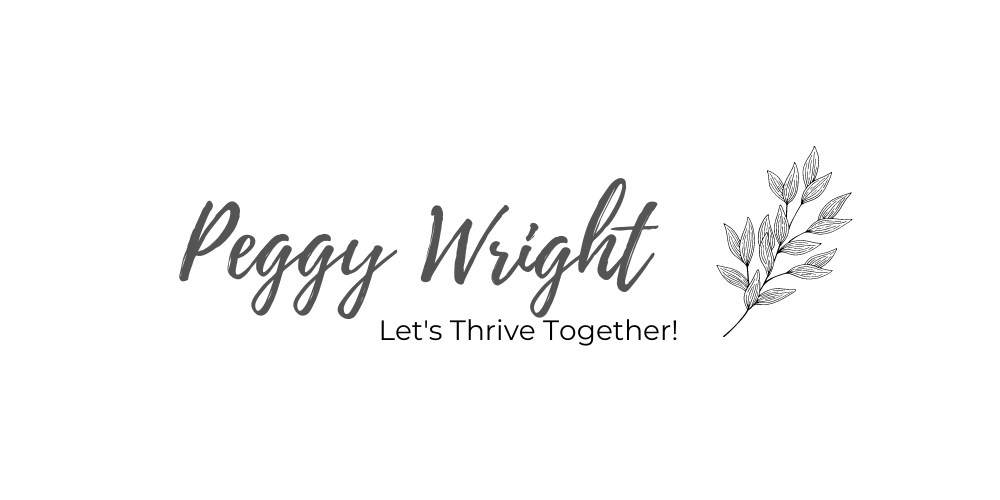
It's ironic that I was asked to prepare a session for our camp leaders in training on conflict resolution. I hate conflict and would rather absorb discomfort than confront social awkwardness and tension. But, regardless of my attempts to dodge it, conflict is just part of life as imperfect people try to work effectively on teams together, partner in marriage and families, or even work with the public.
So, I've concluded that we can avoid it, escalate it, or be part of the solution. We can’t control the actions and responses of other people – but we can control our actions.
Have you ever tried to avoid conflict hoping it would go away?
It tends to get bigger and more complicated. It can drain us of energy and become a strong, invisible force of negative energy that shadows everyone connected to the community in which there is conflict. It’s like having a mouse in your house, if you ignore it, you’ll soon have a whole village. Mice are cute, until they are chewing your electrical cords and joining prayer meetings (true story)... and leaving telltale signs of their presence in your cupboards. Avoidance only works if you don't have to continue to share the house with the mice and decide to let them take over while you move out.
But conflict with people can't be moved away from as easily as a mouse filled house. Even if we don't have to see them again, the tension leaves an emotional toll on our hearts and minds as we try to figure out how that could have gone differently.
“I urge you to live a life worthy of the calling you have received. Be completely humble and gentle; be patient, bearing with one another in love. Make every effort to keep the unity of the Spirit through the bond of peace.” Ephesians 4:1-3
So, avoidance isn't usually a good option unless I've already had several fruitless interactions or the person who hurt me is a abusive and isn't part of my life anymore. Sometimes people just can't see the same situation with understanding and empathy. And some people are so broken they have a hard time relating in a healthy way with anybody. But, if I decide my best step is to move away from the mouse house, I try not to bring any droppings with me. Forgiveness is the only way I know to put down the desire for restitution and let my heart run free.
Generally, we are all in the peace making biz together and conflict resolution is worth the effort. The human community is compared to shared parts of a human body where all are affected by the brokenness and pain of any other part. In the bible, all are called to heal and bind up wounds that exist in the body so we can all function as one team guided by the head - which is Christ. Jesus' teaching centres around love for God, leading to healthy love for others. When we deal with conflict and allow it to mend and bind up broken places in the body, we protect and strengthen the community to function as it was meant to. So, when dealing with conflict it is vital that we deal with it in the right way. If we react in anger and a desire to attack or humiliate or get even or punish in any way, we will make the situation worse.
These are the steps that have often helped me get to the hub of the problem and reveal positive, healing steps.
1.HONESTY -
Pull Back to Calm the emotional waters. Get perspective. No matter how much I am hurt or angry, I need to be still and pray. I take whatever time I need to get perspective on the situation.
Ask: “Why am I angry?” I find, sometimes I may not be angry at what I think I am angry at. I like to turn to a good friend or mentor who can listen impartially and help me make sense of what I'm feeling. Or I write down my thoughts. This is a time to be honest and search the heart. Own up to the mistakes made. It's time to figure out what I did to contribute to the problem and confess that to God. I need to check my attitude and pray until I can see those I'm angry at as people God loves and who are worthy of respect. If I hold onto pride and think of anyone as ‘lower’ that myself, I'm not ready to be part of the solution. A heart that is humble and gentle is a heart God will use to bring peace in the midst of conflict. So, time to open the heart and ask for self control and grace.
“Therefore, as God’s chosen people, holy and dearly loved, clothe yourselves with compassion, kindness, humility, gentleness, and patience. Bear with each other and forgive whatever grievances you may have against one another. Forgive as the Lord forgave you. And over all these virtues put on love, which binds them all together in perfect unity. Let the peace of Christ rule in your hearts.” Colossians 3:12-15a
Step 2: UNDERSTAND
My experience tells me that no matter how much I think I completely understand the conflict, I might not. There is often another side that I don’t fully understand, and those I'm in conflict with won’t likely be open to connecting until they feel ‘heard’. So, once my heart is in the right place, it's time to go to those I'm in conflict with and listen hard to understand their point of view.( Note: if you feel unsafe going back to the person who hurt you, bring a mentor to mediate.) The purpose of meeting is not to blast them out of the water or tell them how upset I am. The first move is to seek to understand. This may pave the way for those who I offended to want to hear and understand too. So, this is time to just listen and only ask questions to gain clarity. I must not interrupt or correct them. I coach myself to "just listen. Listen to their heart and try to put yourself in their shoes. Be patient and bear with them, even if what they’re saying is driving you crazy. Remember, if you hear them out, they are more likely to hear you". When it is my turn to communicate, I tread softly. Attacking or generalizing or exaggerating will make things worse. I talk about how an interaction made me feel and how I understood what was going on, while affirming that I now see why the other person saw it differently. I try to clarify what I heard them say and offer empathy. It is so easy to say something hurtful and inflame the already tender situation. These situations don't always end with reconciliation. But, even if I feel attacked, I bite my tongue to keep from lashing back. Self control is so important... and if mine is running low, I ask God for more – it is one of the fruits God’s Spirit can grow in us. When it is tempting to bark out harsh words, I remember who I want to be as a peacemaker and as a sower of kindness and care and try not to descend into nastiness. Expressing my intention to be good to others and mend brokenness helps me to focus on “I” and “me” statements, not “YOU” accusations.
Examples: “It hurt me when you didn’t communicate with me before making that decision.” NOT “You should have asked me before you did it. You always act alone.” “It was hard for me when my ideas were put down. It made me not want to contribute to this team.” NOT: “You made me feel like crap when you put my idea down. You are mean.” “I have a different way of approaching that problem.” NOT: “You drive me crazy with your way of approaching problems. It’ll never work.”
In the ‘understanding’ phase, the goal isn't to find solutions. It’s all about gaining an accurate picture of the issues and problems and hopefully both parties owning their part in it.
3. BE Part of the Solution This is a good time for another attitude check. The desire to get even and punish will railroad any attempts at moving forward in a healthier way. To be part of the solution, we can't still part of the problem. Asking God’s help to forgive and to be open to reconciliation – to repairing the damage done so you can work together is crucial. This doesn’t mean we will now be best buddies, but it does mean that I no longer want to hurt them or hold power over them. When we want what is best for both of us, we’re ready to work at finding a solution that will be a win-win for everybody.
Gary Chapman and Jennifer Thomas are psychologists who have recognized that we have different languages for apologies. If you don’t include the other person’s language, any attempt to make things right will feel weak and unacceptable.
Here’s the five apology languages they discovered:
1. Expressing regret – “I’m sorry”
2. Accepting responsibility – “I was wrong.”Let them know you understand why they would be upset.
3. Making restitution – “What can I do to make it right?”
4. Genuinely repenting – “I’ll try not to do that again.”(Check in later to tell them what change has been made to keep it from happening again.)
5. Requesting forgiveness – “Will you please forgive me?”
At this point you may feel the whole situation was just a big misunderstanding and be happy to continue to work together. But it's possible that there will still be some anger or a cool response. It's also possible that the relationship is so unhealthy it cannot work without big change and trust building. We can’t control other people – we can only do what we can to contribute to peace. The goal is to be free of the burden and shadow of the conflict by acting faithfully to honour God and the community. Treating the person with kindness and respect (including good boundaries) may bring peace in us and good fruit may yet come of it.
"You are the body of Christ, and each one of you is a part of it... If one part suffers, every part suffers with it; if one part is honoured, every part rejoices with it.” I Corinthians 12:26-27
Relationships can be easy -" I like people that make me like them, it saves so much work" (LM Montgomery's Aunt Josephine). But I've often found relating to a wide variety of people both rewarding and one of the biggest forces of personal growth. Let's keep working at creating a community where all are part of "us" and no one is relegated to a distant land of "them".




0 Comments